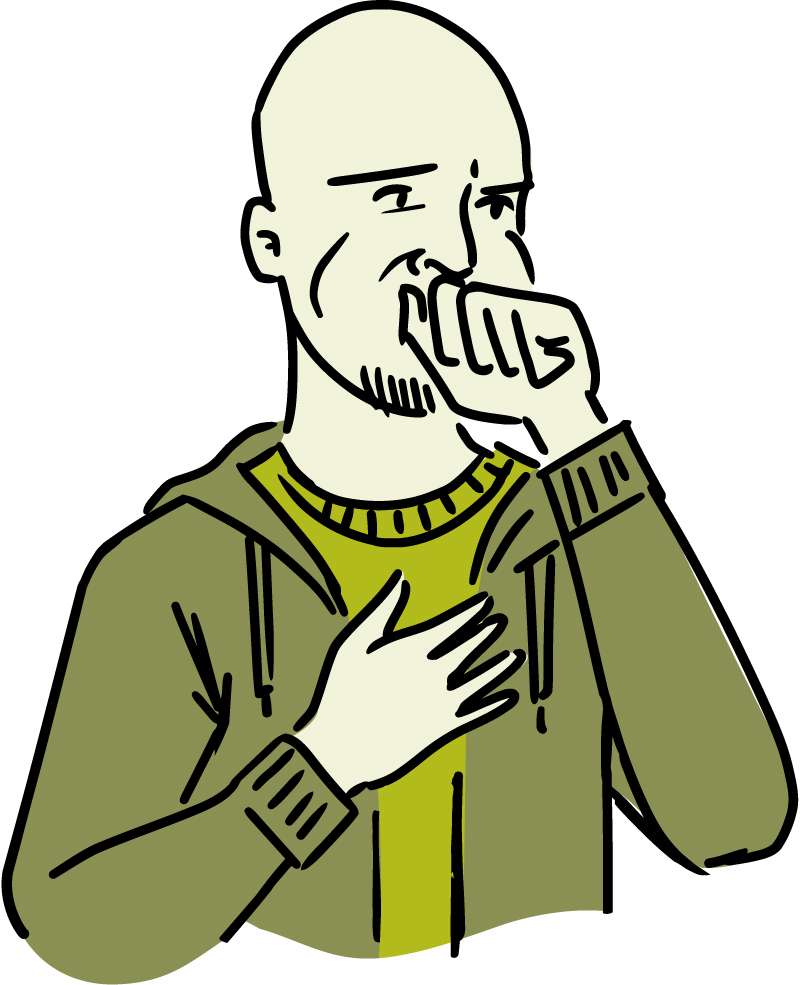Reflux or GERD?
When Heartburn Spells Trouble

Most of us get heartburn from time to time. It may come as a burning sensation in the chest, or a bitter taste in the back of the throat. Heartburn is one word people use to describe When stomach contents rise up into the esophagus. reflux. It happens when stomach contents come back upwards. Reflux is sometimes painless: You may have trouble swallowing or get a dry cough, perhaps some wheezing.
Occasional reflux episodes are normal. Like millions of Americans, you can manage reflux by avoiding foods that don’t agree with you—things that are fatty, spicy or acidic—or by eating smaller meals. If reflux occurs less than once a week, you can usually cope by making lifestyle changes or using over-the-counter medications.
“We all have a little reflux when we burp or belch,” says Dr. John Pandolfino of Northwestern University. But of the 20 million or more Americans with reflux, about 5% have significant episodes 2 or 3 times per day. When severe events occur this often, it’s not ordinary reflux. It may be Related to the stomach and the esophagus. gastroesophageal reflux disease (GERD). You may need prescription medications to control it.
GERD should be taken seriously. Stomach (gastric) contents contain acid needed to digest food. In reflux, these contents wash upward into the esophagus, a slender tube connecting the mouth and the stomach. Because the lining of the esophagus isn’t meant to touch gastric acid, the acid can irritate the lining of the esophagus and lead to bleeding and scarring. In adults, GERD can raise the risk of cancer of the esophagus. And if you have asthma, GERD can make it worse.
As for babies, reflux is common in healthy infants. Most babies outgrow reflux by 13 months, but if they don’t, they too may have GERD.
GERD can harm a child’s ability to feed and grow. It can also increase the risk for inhaling stomach contents into the lungs. This can be life-threatening.
People of any age can have GERD. Available medications, whether over-the-counter or prescription, can make the acid in the esophagus less intense. But medications don’t prevent GERD. Surgery can be an option if symptoms are severe and medicine and lifestyle changes don’t seem to help.
Dr. Michael Raymond Ruggieri, Sr., of Temple University is researching the root causes of GERD. The problem isn’t that the stomach makes too much acid. In GERD, the special set of muscles between the esophagus and the stomach is weakened.
“The stomach muscle fibers are not doing their job, and we’re trying to understand why they’re not,” says Dr. Ruggieri. His team is among the first to look at how nerves receive and send messages to these muscle fibers. Their goal is to develop drugs that prevent GERD altogether.
If you have reflux twice or more per week, talk to your health care provider. It’s best to start treatment early to prevent GERD from leading to more serious health problems.
NIH Office of Communications and Public Liaison
Health and Science Publications Branch
Building 31, Room 5B52
Bethesda, MD 20892-2094
Contact Us:
nihnewsinhealth@od.nih.gov
Phone: 301-451-8224
Share Our Materials: Reprint our articles and illustrations in your own publication. Our material is not copyrighted. Please acknowledge NIH News in Health as the source and send us a copy.
For more consumer health news and information, visit health.nih.gov.
For wellness toolkits, visit www.nih.gov/wellnesstoolkits.




